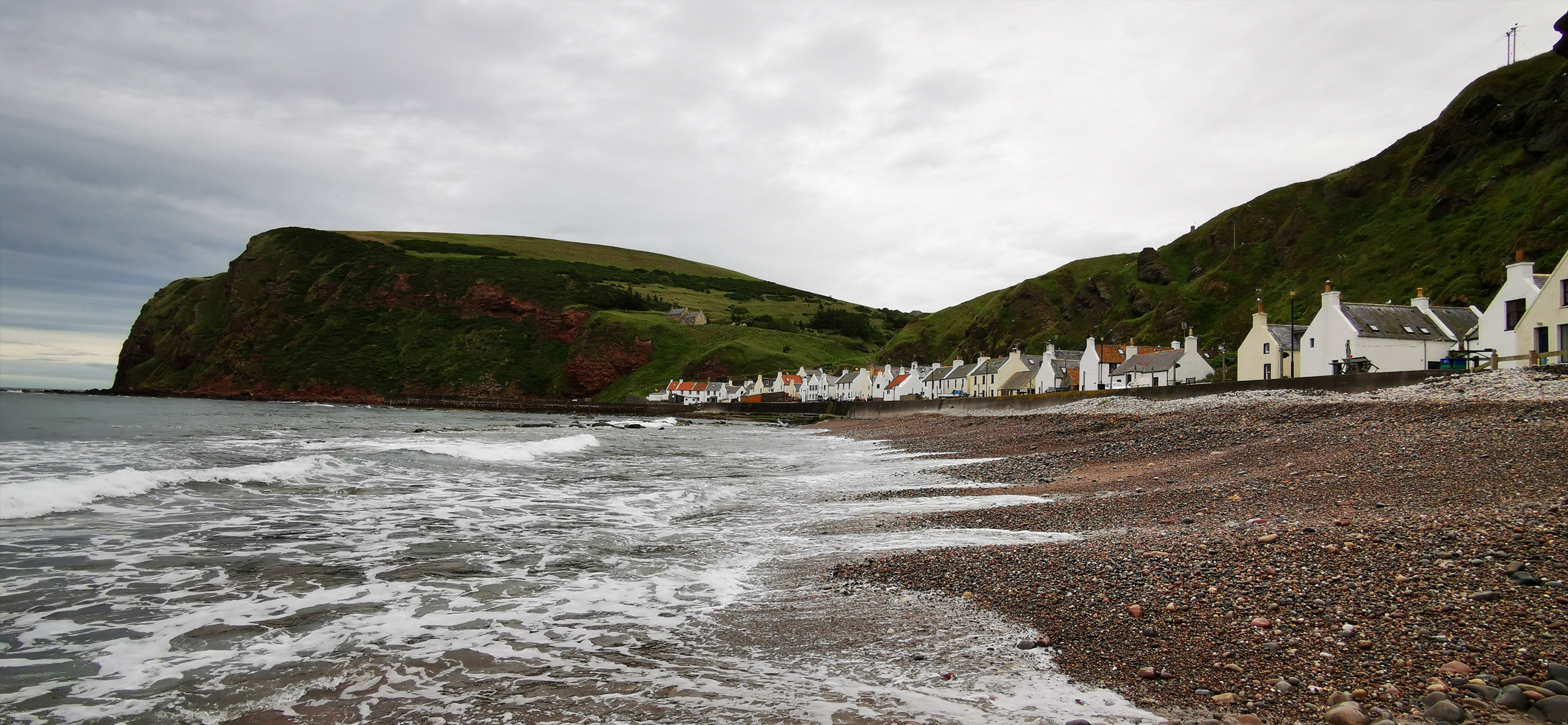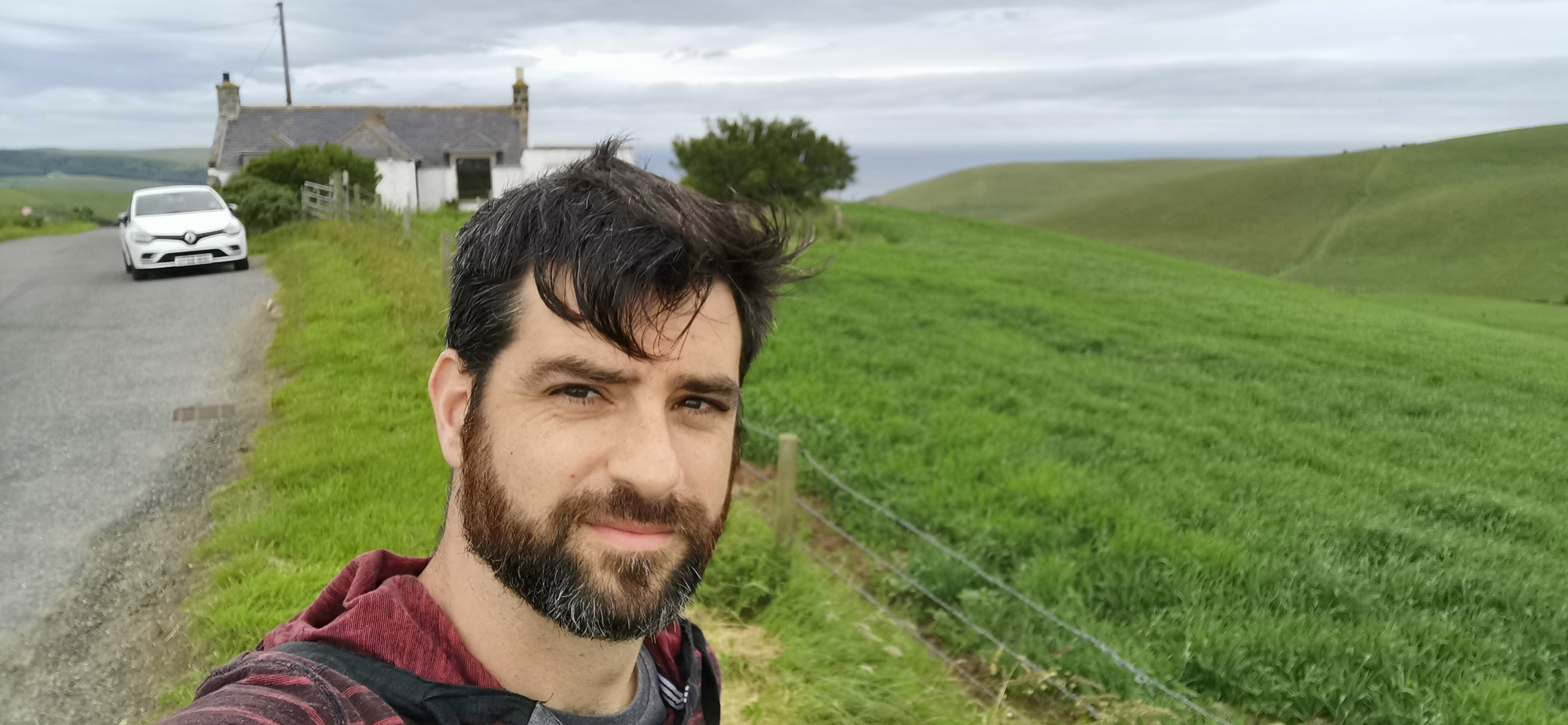The Key – Roots Buried in the Sands at Pennan
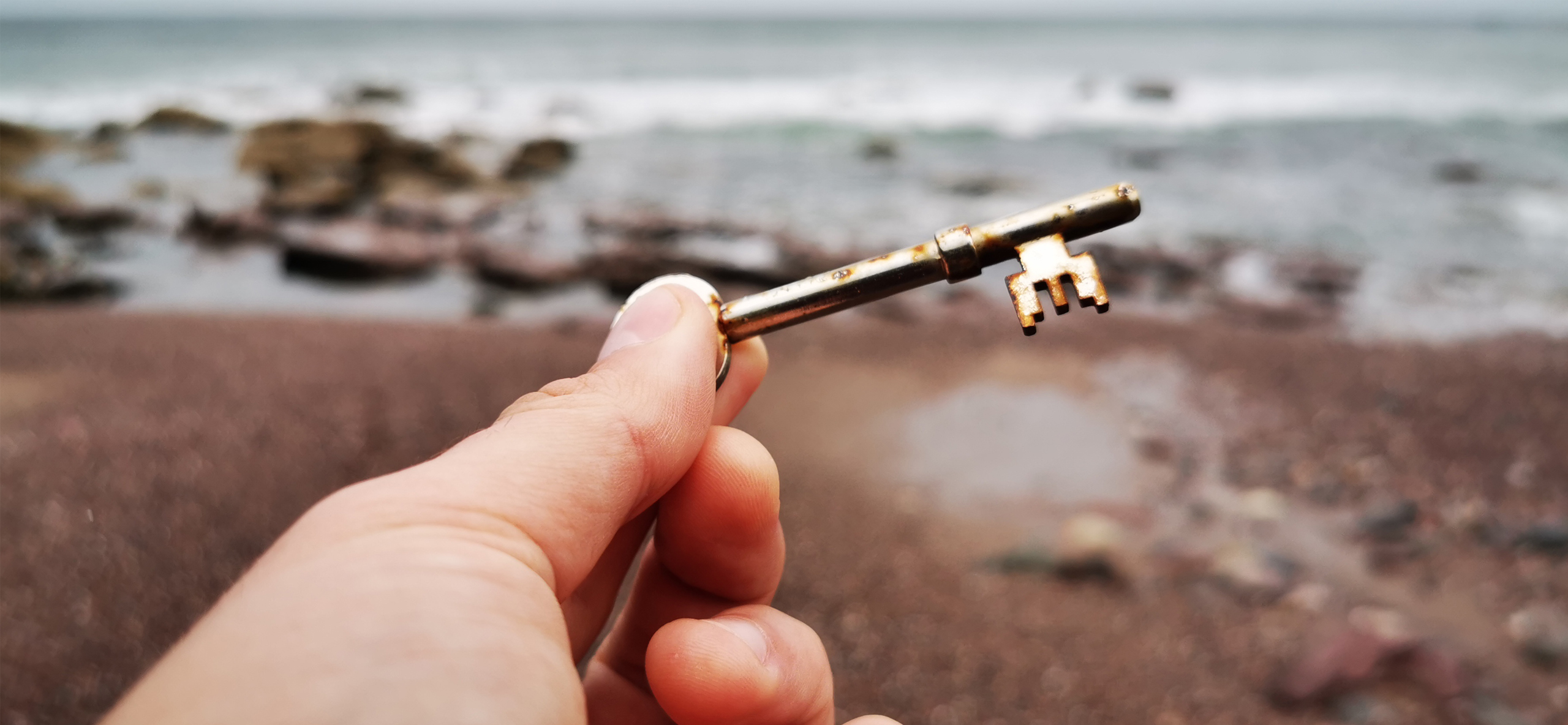
When I was born I inherited a surname. Being a Baird was something I had no say in, but it has had something to do with how the world has shaped me from that very first day.
“Are you another of the fine Bairds that have been attending this institution over the last century?” exclaimed Dr. Khoury shaking my hand at roll call in the ninth grade at my high school, referring to my brother who preceded me and whom he had adored as a pupil.
“I had expected more from you,” Mrs. Leblanc remarked of my first English essay – once again referring to my brother who had inadvertently blazed a trail too high up the mountain.
The entire faculty at John Abbott College knew of me because my father had been a professor in the Humanities department there for 25 years before I showed up. They were all eager to have me in their classes, and curious to see if the apple had landed close to the tree so that they allowed my work, such as it was, to coast through perhaps without real scrutiny.
I have been able to saunter through life mostly unnoticed since my college days growing and pulling up roots in Canada and the occasional sojourn abroad. When people ask where I’m from I say Canada, but it’s become more complicated lately since when people ask me what part of Canada I am from the question can come in two forms: “where in Canada are you from?” or “where in Canada do you live”? Both questions receive the same response as I say, “I was born and raised in Montreal, but have been living the last seven years in Vancouver”.
I have always remarked that Hungary smells like grandma’s house and when I mention that I am Hungarian, yet I don’t speak the language, or awkwardly say, “sajnos, beszelek kicsit”, my attempts to self-identify in front of others as Hungarian is met with derision more than curiosity as though I am trying to be something that I’m not. Still, I have a Hungarian passport and cousins and family who live in Hungary that I visit regularly. Yet for many, it is not enough for me to be Hungarian as though one’s roots do not form a part of who you are.
That surname that I inherited from my father has travelled quite a lot. Growing up, what I knew about the Bairds was that my father had emigrated to Canada from California in the 1970s where his father and grandfather had worked for the railroad company. Before that, the Bairds had first reached North America by settling a town called Chipman, New Brunswick and those Bairds had left Ireland and Scotland where the name Baird comes from. The surname Baird comes from the Scottish clan Baird and I had been raised as a Baird capable of recognizing my crest and my tartan and speaking the language of Scots but, without the accent, often reminded that I was not Scottish.
When I arrived in Scotland and began my journey by car I dedicated a small portion of my time to trying to locate old Baird lands to better understand where the name, and my people, came from. Growing up I had heard the story of the first of the Bairds that had saved the king who had been attacked by a wild boar (or bear) during a hunting expedition, and in gratitude conferred lands over to Mr. Baird. The first clue I received about the historical Baird clan and their lands was in Dunblane when I asked the curator at the church where I might be able to find old clan information about the Bairds. He pointed out that I should first be sure that Baird was in fact a clan and not simply a sept – a subdivision of a clan with a different surname and allegiance to a clan chief. He did some digging and discovered that Baird was in fact a clan and that we had built a castle by a ravine overlooking the town of Pennan in Aberdeenshire. We scanned some old satellite images looking for signs of a ravine and believed we found one that would have been the likely site of the Baird castle where the Bairds had had a dynasty for 200 years from the 16th to the 18th centuries.
I dug a little deeper and found the tale of a strange prophecy concerning the Bairds that helped to cement this location as the likely site of my ancestors. The prophecy was made by one Thomas the Rhymer who predicted that when a pair of eagles resting in Pennan disappeared the Auchmeddan estate would pass from the Baird family. The Auchmeddan is the name of the small river that runs alongside the ravine that we spotted and emptied into the bay at Pennan. What is curious is that, according to what I could find, this prophecy was made 100 years before the Bairds even settled in the area. Eventually, the estate passed to the Gordons and, in keeping with the prophecy, the eagles are alleged to have disappeared.
Eventually, I dug even a little deeper and found in the Aberdeenshire county record a topographical map of the area around Pennan by Auchmeddan that made reference to the site of Auchmeddan Castle of which nothing remains. But the topographical map and the satellite images were identical. This had to be it. On the fifth day of my drive through Scotland I left Alness and headed along the Moray coast, an area dotted by small villages, and along into the Northern Aberdeenshire on the northeastern point of Scotland. I was headed to Fraserburgh that day and the most direct route is along the A98 leading out of Banff which bypasses Auchmeddan altogether so I needed to venture along smaller and less clearly marked roads. I kept an eye on my GPS and just after Pennan along route B9031 the road began to rise past an old farm with a cottage only a hundred or so metres down the road. On the eastern side of that stretch of road, now fenced off grazing lands for sheep and cows, once stood the castle of my clansmen. Somewhere deep in my ancestry, centuries ago, a Baird of my line likely walked that same road between the castle lands and Pennan – and now one of us had come all the way back.

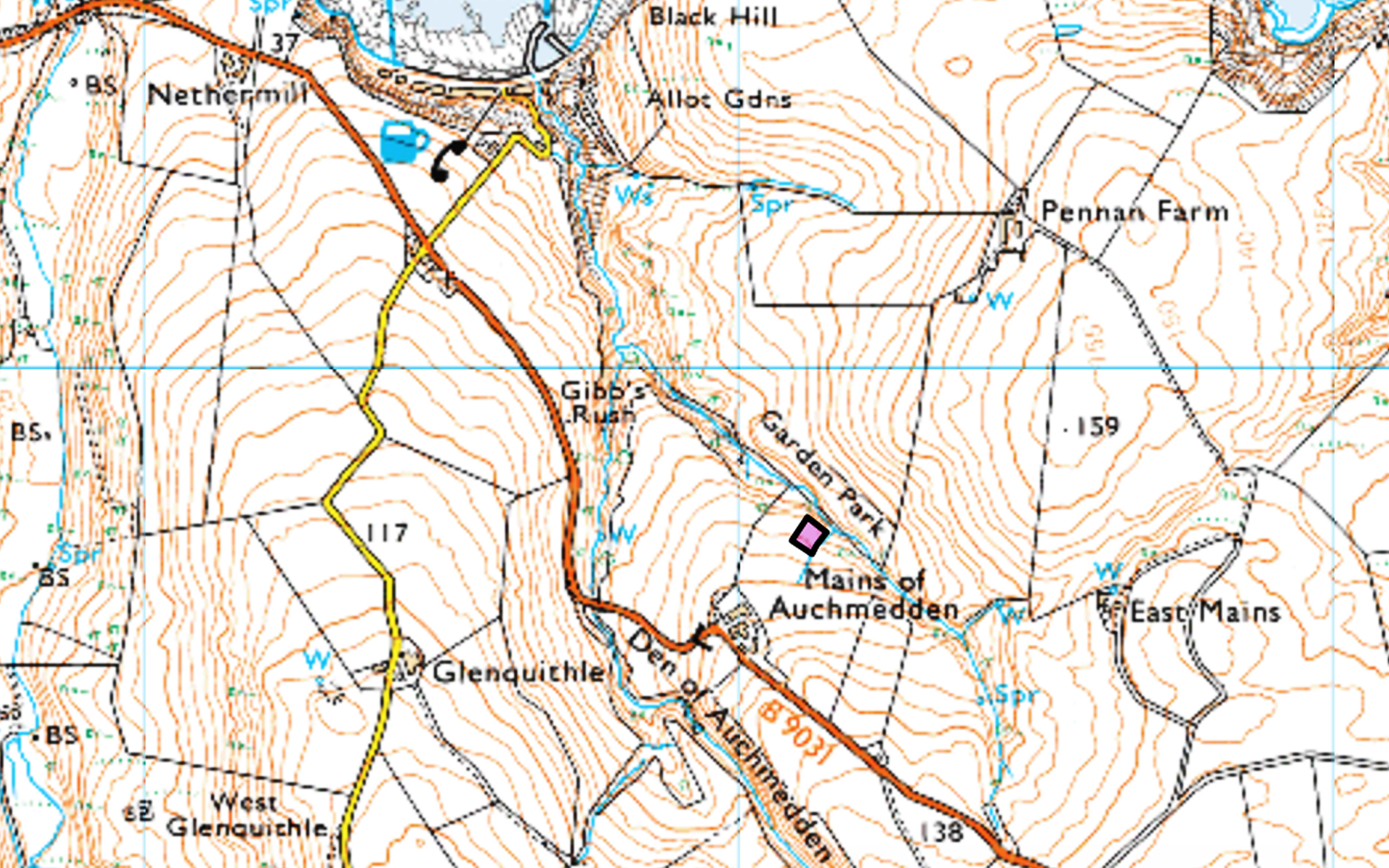
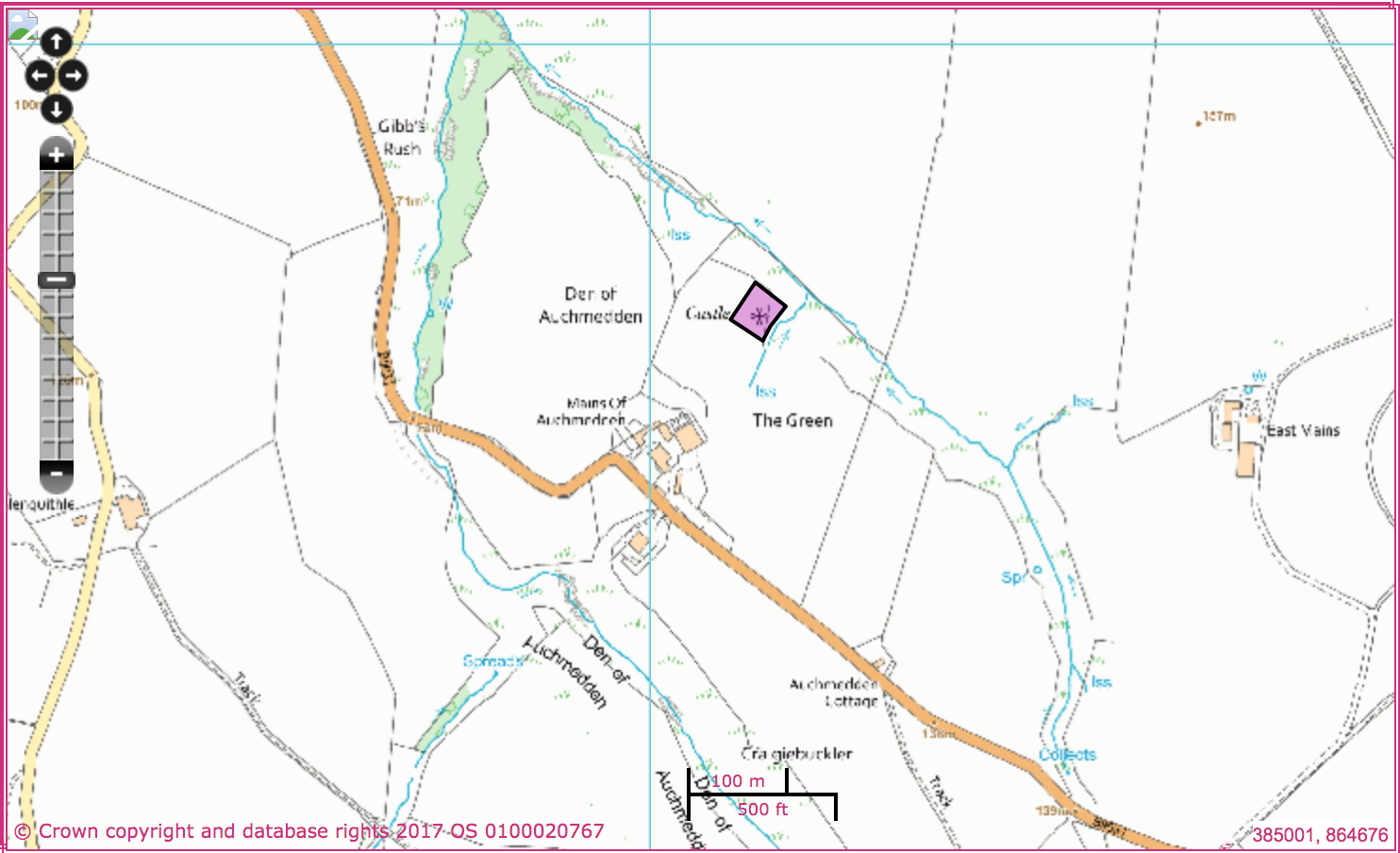
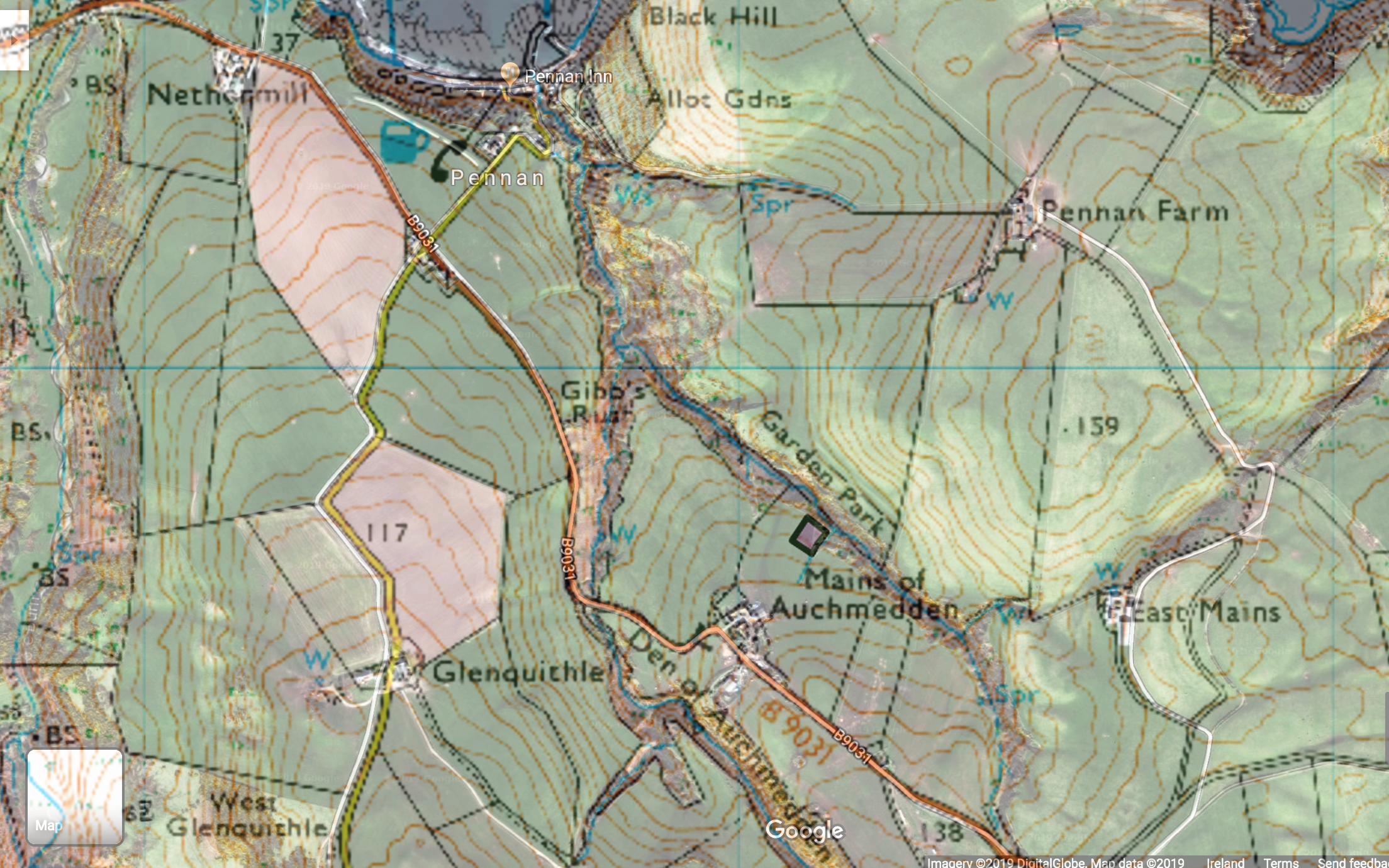
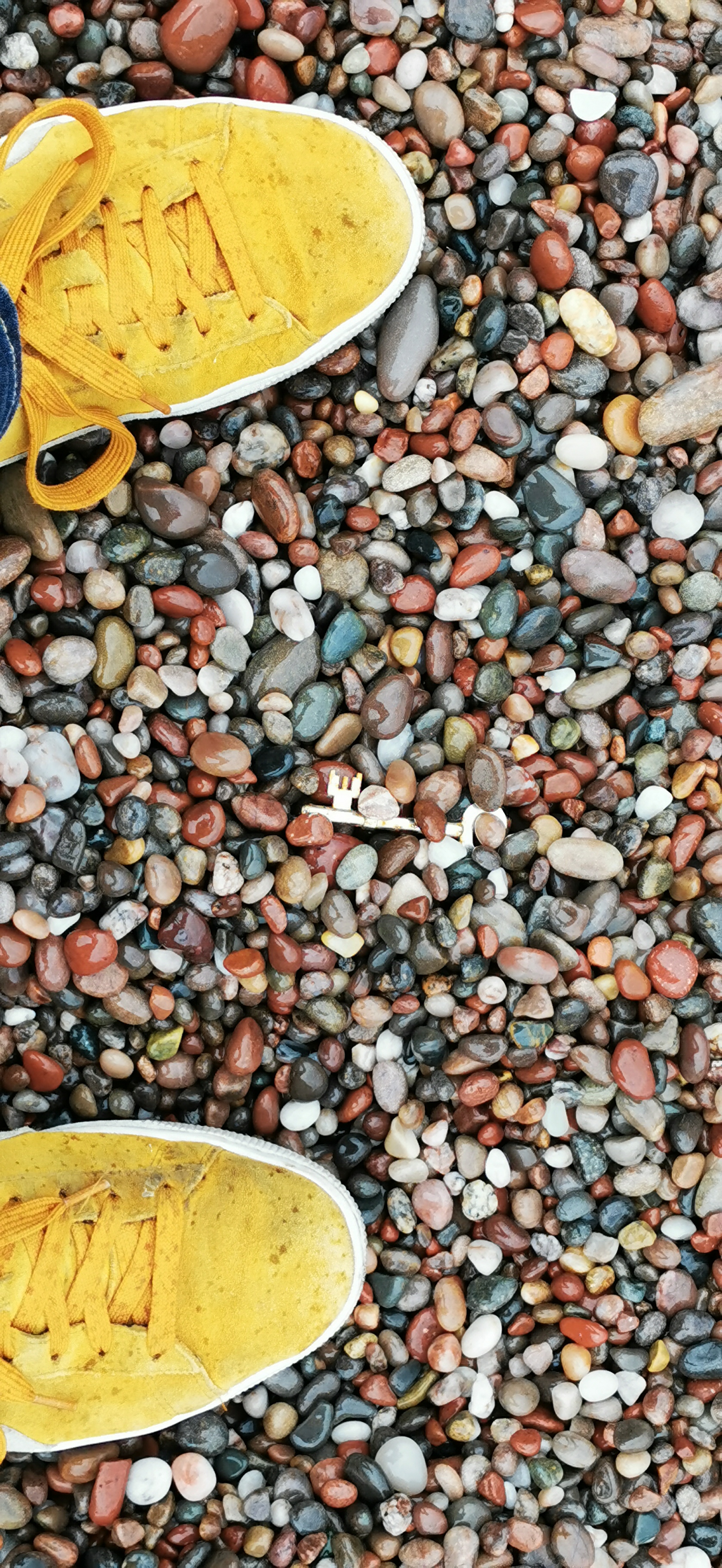
The road that leads down to Pennan is so steep and winding that when I reached the bottom I feared I would never be able to get back up to the main road again. I parked the car by the bay and walked along the lone road through town. The eagles were long gone and so was the castle, but once upon a time many a Baird would have walked this same path, returning to this harbour to gather fish from the sea. I stepped onto the sand and breathed deeply the sea air and reflected on who I was and why I was here. You can claim that I’m not Scottish all you want, but my name brought me here and my name is Scottish. In my short time in Scotland, I learned that the Scottish are a proud people. They have calloused hands from working the Earth and the sea and they don’t take shit from anybody. The wind on my face was cleansing as I dipped my fingers into the cool waters of the sea splashing my face and tasting the saltwater on my tongue. I’m a traveller, and you vacation to where you are not from, but you to travel to where you are from and I travelled to Scotland to know how I had earned my surname. The Bairds can no longer lay claim to that shore, but as we once had a hand in shaping the land so those lands have had a hand in shaping me.
It had been a long day and tiresome search and the sun was setting. Scotland is a magical place and those old lands made sure that I did not leave there without presenting me with a tremendous gift. This was not my home and I knew that it would be all I would see of these ancestral lands for some time and so maybe my feet dragged a little as I stumbled back toward Cliopatra to commence my farewell. Perhaps it was the ghosts of centuries past or something in my bones that sharpened my senses but I became hyper-aware of the sound and motion of that place. I could discern the coo of every seagull as they dove into the sea for a meal and the crash of every wave along the beach. I could hear the crunch of every grain of sand below my feet and so I noticed when something I had stepped on sounded off. It was not rock, or shell, or sand. I looked down and there was a mysterious key tarnished with a bit of rust. How long it had been lying in the sand I could not say, but it reminded me that perhaps by coming here I had managed to open a door to a part of who I was.
